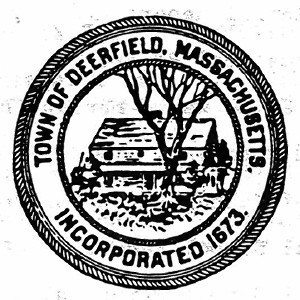Beacon Hill Roll Call: May 8 to May 12, 2023
| Published: 05-19-2023 3:43 PM |
This week’s report is on the latest fundraising and expenditure numbers for the state’s 40 senators’ campaign committees from the latest filing period of April 1, 2023 to April 30, 2023. It also includes how much money each senator has on hand as of April 30, 2023. The numbers are from the Massachusetts Office of Campaign and Political Finance.
To get more information on any senator’s fundraising and expenditures, go to ocpf.us. Click on “Filer listing” under “Browse candidates” and then type the name of your senator in the box that says “Filter by name” in the upper left-hand corner of the page.
The senator with the most cash on hand is Sen. Mark Montigny, D-New Bedford, who currently has $805,440.91 in his campaign account.
Rounding out the top 10 senators with the most cash on hand are Sens. Mike Rodrigues, D-Westport, $657,981.09; Bruce Tarr, R-Gloucester, $462,453.49; Senate President Karen Spilka, D-Ashland, $308,264.53; Jamie Eldridge, D-Acton, $217,377.61; William Brownsberger, D-Belmont, $210,789.49; Julian Cyr, D-Truro, $197,654.27; Ryan Fattman, R-Sutton, $175,058.35; Michael Barrett, D-Lexington, $154,132.47; and Marc Pacheco, D-Taunton, $149,735.90.
The senator with the least cash on hand is Sen. Pavel Payano, D-Lawrence, whose campaign account currently has a balance of $258.81.
Rounding out the bottom five senators with the least cash on hand are Sens. Liz Miranda, D-Boston, $1,089.79; Anne Gobi, D-Spencer, $4,644.61; Paul Feeney, D-Foxborough, $7,528.63; and Michael Brady, D-Brockton, $7,758.68.
The senator who raised the most money is Senate President Karen Spilka, D-Ashland, who raised $65,650.65.
Article continues after...
Yesterday's Most Read Articles
Rounding out the top five senators who raised the most money are Sens. Sal DiDomenico, D-Everett, $34,836.98; Mike Rodrigues, D-Westport, $29,731.10; Mike Moore, D-Millbury, $23,825.92; and Adam Gomez, D-Springfield, $20,128.23.
There are eight senators who raised $0: Sens. Brendan Crighton, D-Lynn; Ryan Fattman, R-Sutton; Edward Kennedy, D-Lowell; Joan Lovely, D-Salem; Pavel Payano, D-Lawrence; Bruce Tarr, R-Gloucester; Walter Timilty, D-Milton; and John Velis, D-Westfield.
The senator who spent the most money is Senate President Karen Spilka, D-Ashland, who spent $44,153.13.
Rounding out the top five senators who spent the most money are Sens. Nick Collins, D-Boston, $10,800.73; Julian Cyr, D-Truro, $7,439.99; Mike Rodrigues, D-Westport, $5,941.98; and Michael Moore, D-Millbury, $5407.21.
The senator who spent the least amount of money is Sen. Edward Kennedy, D-Lowell, who spent $0.
Rounding out the top five senators who spent the least money are Sens. Pat Jehlen, D-Somerville, $37.19; Pavel Payano, D-Lawrence, $147.67; Adam Gomez, D-Springfield, $223.53; and Cindy Friedman, D-Arlington, $238.73.
Here is the total amount of cash your local senators have on hand.
Sen. Joanne Comerford — $58,295.17
Sen. Anne Gobi — $4,644.61
Sen. Paul Mark — $45,975.65
Here is the total amount of money your local senators raised in April 2023.
Sen. Joanne Comerford — $3,115.80
Sen. Anne Gobi — $596.05
Sen. Paul Mark — $4,625.26
Here is the total amount of money your local senators spent in April 2023.
Sen. Joanne Comerford — $1,080.63
Sen. Anne Gobi — $544.49
Sen. Paul Mark — $3,363.59
The Judiciary Committee held a hearing on legislation that would prohibit cities and towns that foreclose on properties on which the owner owes back property taxes, from keeping all the profits when the city or town sells the property at auction. It would repeal the current law that allows municipalities to keep all the profits — even if the amount of profit far exceeds the back taxes owed.
“Massachusetts foreclosure law wrongly takes away people’s homes for even a small debt and allows municipalities to profit off their home equity well beyond the debt owed, leaving the homeowners vulnerable to housing and economic instability,” said sponsor Sen. Jo Comerford, D-Northampton. “These homeowners are losing hard-earned equity and life savings, losing homes with precious family memories and also facing housing instability due to predatory tax foreclosure practice.”
The Agriculture Committee held a hearing on a proposal that would allow home cooks to sell their homemade foods that carry a low risk of foodborne illness — those that do not need to be temperature-controlled — without a local health department or zoning permit. These so-called “cottage foods” would only be allowed to be sold directly to the consumer in person at farmers markets, public events and roadside stands, or by telephone, internet or mail delivery. Products include jams, uncut fruits and vegetables, pickled vegetables, hard candies, fudge, nut mixes, granola, coffee beans, popcorn and some baked goods including breads, biscuits, cookies, churros, pastries and tortillas.
“Technicalities should not prevent small businesses and farmers from stimulating rural economies and improving economic development,” said sponsor Sen. Jake Oliveira, D-Ludlow. “My legislation … will break down the barriers that prevent rural small business owners from operating, spur competition in the market and create better prices for consumers.”
Supporters, noting that 49 states allow cottage food sales, say that during the pandemic, selling cottage food provided a lifeline for unemployed Massachusetts residents. They also noted consumers enjoy having access to local food. They argue that by following the lead of these 49 other states, Massachusetts can support food entrepreneurs, create economic opportunities and increase access to locally made food.
Another measure heard by the Agriculture Committee would provide a tax credit of $5 per full 5-gallon bucket to individuals or businesses that donate oyster shells to an oyster shell recycling organization.
“A shell recycling tax credit presents a creative and thoughtful tool to help diminish landfill waste, create habitat and mitigate pollution in our waters,” said sponsor Sen. Julian Cyr, D-Truro. “A $5 tax credit per 5-gallon bucket of recycled shells for restaurants will help encourage this environmentally friendly practice.”
The Financial Services Committee held a hearing on a measure that would prohibit failure to get a vehicle inspection from resulting in a surcharge on the owner’s insurance.
“Being late on a motor vehicle inspection (expired inspection sticker) should not result in an insurance surcharge, which could be counted toward a suspension of a driver’s license,” said sponsor Rep. Steve Howitt, R-Seekonk. “It should not be comparable to a moving violation.”
Another bill heard by the Financial Services Committee would require insurance companies to provide a written notification to customers when the company charges a fee to process an electronic payment transaction for an automobile insurance policy.
“I filed this bill after hearing from a constituent who was being charged by their insurance company for making online payments and had never been notified that they would be subject to these fees,” said sponsor GOP Minority Leader Rep. Brad Jones, R-North Reading. “This is a pro-consumer bill that will help to ensure that insurance companies provide full disclosure to their policyholders on any additional fees they may assess for conducting these types of transactions.”
The Revenue Committee held a hearing on a pair of bills filed by Sen. Patrick O’Connor, R-Weymouth, which would offer tax credits to families taking care of sick or elderly relatives at home.
S 1906 would provide a $2,500 tax credit for families that provide more than half of the support for a relative who is at least 70 years old, or a fully disabled relative who has Alzheimer’s disease or dementia. The relative must have lived with the family for more than six months within the year the tax credit is provided.
S 1908 would offer a $5,000 tax credit to individuals who pay for direct home health services for themselves or elderly parents and in-laws ages 60 and over. The legislation would also allow a $5,000 tax credit to individuals who pay for direct home hospice services from a licensed provider for either themselves or someone else.
“Caregivers are most often family members,” said the bills’ sponsor Sen. Patrick O’Connor, R-Weymouth. “Whether they’re staying home to take care of family or bringing in additional help, these individuals shouldn’t have to worry about difficult financial decisions. These bills seek to ease their burden and allow them to spend more quality time with their loved ones.”
The Environment and Natural Resources Committee held a hearing on a proposal that would expand a current law that restricts pesticide application where children are present, including outdoor property of a school, child care center or school-age child care program while children are located in, on or adjacent to the area of the pesticide application. The bill would expand the current restrictions to include property occupied by the Department of Children and Families, facilities of the Juvenile Court, facilities of the Department of Youth Services and sports fields used for town youth teams.
“I believe this bill would help to protect children in and around [these] facilities from pesticide exposure,” said sponsor Sen. Will Brownsberger, D-Belmont.

 $50K allocated for Poet’s Seat Tower sandblasting as officials mull vandalism prevention
$50K allocated for Poet’s Seat Tower sandblasting as officials mull vandalism prevention Deerfield voters to decide 8 capital projects at Town Meeting
Deerfield voters to decide 8 capital projects at Town Meeting Shelter money fading, but ‘not at the end of the line’
Shelter money fading, but ‘not at the end of the line’ Greenfield City Council approves borrowing $1.18M for Main Street redesign, sewer repairs
Greenfield City Council approves borrowing $1.18M for Main Street redesign, sewer repairs
